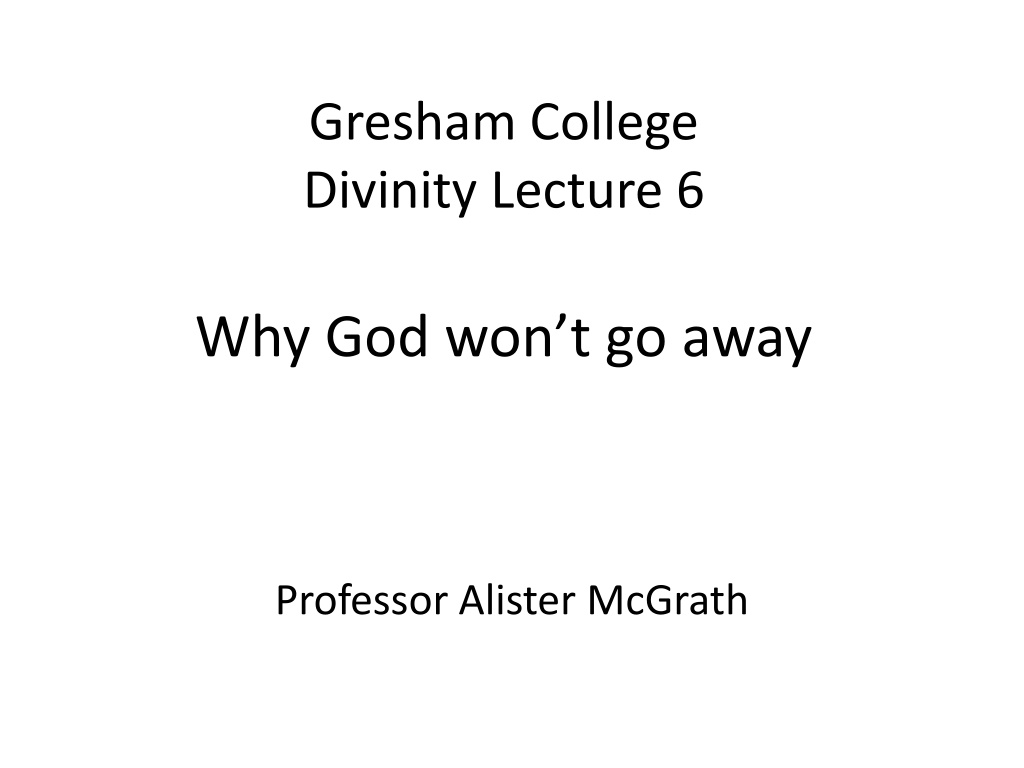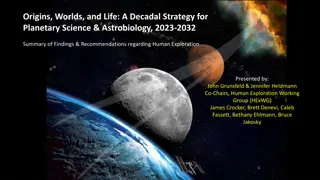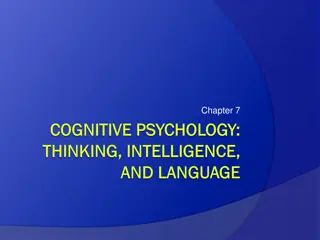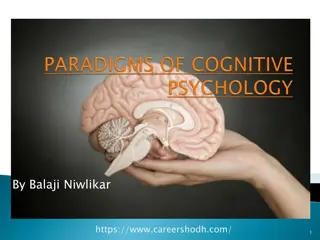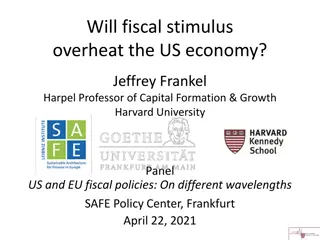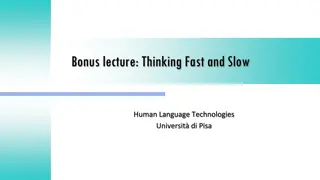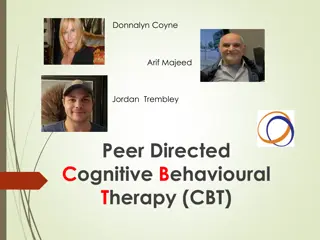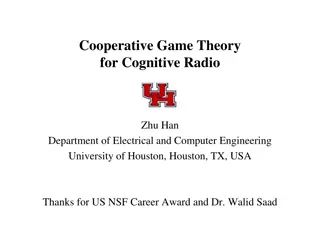Exploration of Religiosity and Contrarian Thinking in Cognitive Science
Delve into the cognitive science of religion through the lectures by Professor Alister McGrath, Justin Barrett, and Pascal Boyer, examining how scientific discoveries challenge intuitive beliefs. Explore how figures like Robert McCauley and C.S. Lewis navigate the clash between common sense and new theories, using allegories and arguments centered on desire, beauty, and hope to elucidate complex ideas.
Download Presentation

Please find below an Image/Link to download the presentation.
The content on the website is provided AS IS for your information and personal use only. It may not be sold, licensed, or shared on other websites without obtaining consent from the author. Download presentation by click this link. If you encounter any issues during the download, it is possible that the publisher has removed the file from their server.
E N D
Presentation Transcript
Gresham College Divinity Lecture 6 Why God won t go away Professor Alister McGrath
Cognitive Science of Religion Justin Barrett Pascal Boyer Notion of minimal counterintuitiveness Robert McCauley
Robert McCauley Science challenges our intuitions and common- sense repeatedly. With the triumph of new theories, scientists and sometimes even the public must readjust their thinking.
Robert McCauley When first advanced, the suggestions that the earth moves, that microscopic organisms can kill human beings, and that solid objects are mostly empty space were no less contrary to intuition and common sense than the most counterintuitive consequences of quantum mechanics have proved for us in the twentieth century.
C. S. Lewis on Desire 1. The Pilgrim s Regress (1933), written shortly after his conversion to Christianity, in which Lewis sets out an allegorical account of his own conversion, focusing on the theme of desire.
C. S. Lewis on Desire 2. The university sermon The Weight of Glory , preached in Oxford in June 1941, and subsequently published as an article in the journal Theology. This is the most elegant statement of the argument, which is here framed primarily in terms of the human quest for beauty.
C. S. Lewis on Desire 3. The talk Hope , given during the third series of Broadcast Talks for the British Broadcasting Corporation during the Second World War, and subsequently reproduced as a chapter in Mere Christianity. This is generally considered to be Lewis s most influential statement of the argument.
C. S. Lewis on Desire 4. The autobiographical work Surprised by Joy, in which the theme of Joy plays a significant role in arousing Lewis s openness towards God.
T. S. Eliot Dry Salvages: We had the experience but missed the meaning; and approach to the meaning restores the experience.
Bertrand Russell The centre of me is always and eternally a terrible pain . . . a searching for something beyond what the world contains, something transfigured and infinite the beatific vision, God I do not find it, I do not think it is to be found but the love of it is my life . . . it is the actual spring of life within me.
C. S. Lewis A true philosophy may sometimes validate an experience of nature; an experience of nature cannot validate a philosophy. Nature will not verify any theological or metaphysical proposition (or not in the manner we are now considering); she will help to show what it means.
Next Years Lectures Religion, Science, and Culture: Six Big Questions Six interesting and relevant topics Each engages with a dialogue partner to make the lecture more interesting . . .
Lecture 1: Does science rob nature of its mystery and beauty? And does theology restore this? John Ruskin on science, religion, and the arts
Lecture 2 Does faith make sense of things? Dorothy L. Sayers on science, faith, and the quest for intellectual order
Lecture 3 Is reality limited to what science can uncover? C. S. Lewis s critique of naturalism
Lecture 4 Respecting and Transcending Nature J. R. R. Tolkien s concerns about technology
Lecture 5 Is humanity naturally good? Richard Dawkins s Selfish Gene
Lecture 6 Is matter evil? Philip Pullman s Dark Materials trilogy
